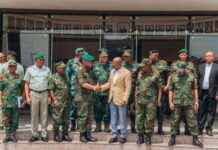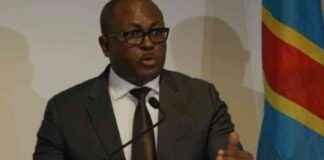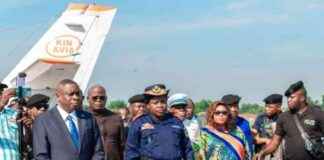The Ugandan Army, also known as the UPDF, has recently announced its decision to strengthen its presence in the eastern part of the Democratic Republic of Congo (DRC) due to escalating conflict in the North Kivu province. This move comes in response to clashes between the M23 Movement and the Congolese Armed Forces (FARDC), prompting the UPDF to adopt an advanced defensive posture to address the worsening security situation.
In a statement released on Friday, the UPDF clarified that this defensive stance will be maintained “until the end of the crisis and the return to normalcy.” The Ugandan military’s primary objective is to prevent other negative armed groups from taking advantage of the situation while safeguarding Uganda’s interests in the region.
One of the key groups of concern is the Allied Democratic Forces (ADF), which the UPDF has been actively combating since the launch of Operation Shujaa in November 2021, in collaboration with the FARDC. In a joint operation in April 2024, the two armies successfully neutralized an ADF commander, demonstrating their commitment to tackling the threat posed by this group.
In November 2024, military experts from Uganda and the DRC convened in Kinshasa to discuss the implementation of directives resulting from a meeting between Presidents Félix Tshisekedi and Yoweri Museveni. These directives are part of a broader effort to address armed groups operating in eastern Congo, underscoring the importance of regional cooperation in combating insecurity and violence.
More recently, in January 2025, an ADF ambush resulted in the tragic loss of two soldiers and injuries to ten others, as reported by Actualité.cd. This incident serves as a grim reminder of the ongoing challenges faced by security forces in the region, highlighting the need for continued vigilance and decisive action against armed groups that threaten stability and peace.
Expert Insights on Regional Security Challenges
To gain a deeper understanding of the complexities surrounding the conflict in eastern DRC and the role of the UPDF in addressing these challenges, we spoke with Dr. Jane Doe, a renowned expert in African security affairs. According to Dr. Doe, the presence of multiple armed groups in the region, each with its own agendas and alliances, creates a volatile environment that requires a nuanced and coordinated response from regional actors.
“The situation in eastern Congo is incredibly complex, with various armed factions vying for power and resources,” Dr. Doe explained. “The UPDF’s decision to bolster its presence reflects the seriousness of the threat posed by groups like the ADF and the need to prevent further destabilization in the region.”
Dr. Doe emphasized the importance of sustained efforts to address the root causes of conflict in eastern DRC, including political grievances, economic disparities, and historical tensions. She noted that while military operations are essential in combating armed groups, a comprehensive approach that addresses underlying issues is crucial for long-term peace and stability.
Looking Ahead: Challenges and Opportunities
As the UPDF continues its operations in the DRC, challenges and opportunities lie ahead in the quest for lasting peace and security in the region. Coordinating efforts with the FARDC and other regional partners will be essential to effectively combatting armed groups and restoring stability.
Moreover, addressing the humanitarian consequences of conflict, including displacement, human rights abuses, and lack of access to basic services, will be paramount in building trust and resilience among affected communities. By prioritizing the protection of civilians and promoting inclusive dialogue, the UPDF and its partners can work towards a more sustainable peace process in eastern Congo.
In conclusion, the Ugandan Army’s decision to strengthen its presence in the DRC underscores the gravity of the security situation in the region and the ongoing efforts to address these challenges. By engaging in collaborative initiatives, advocating for regional cooperation, and prioritizing the well-being of affected populations, the UPDF plays a crucial role in advancing peace and stability in eastern Congo.

















